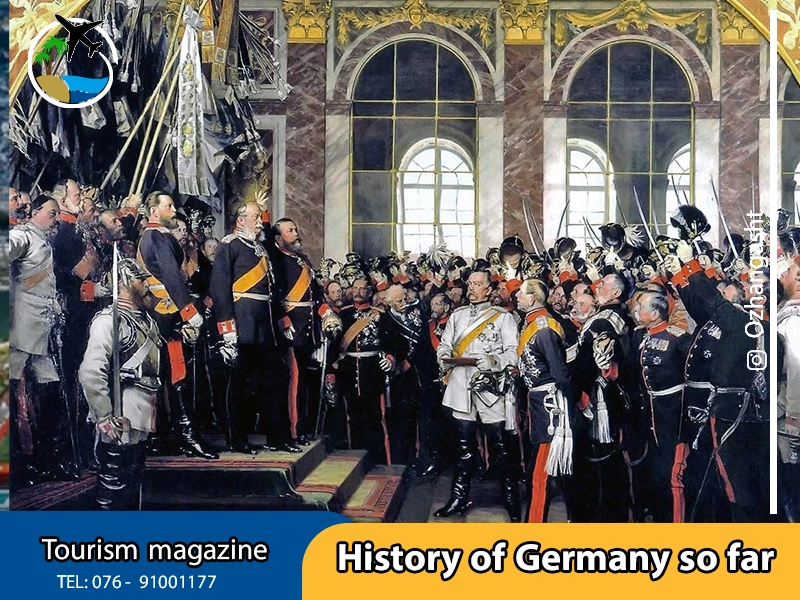A look at the history of Germany
German history
Germany is one of the most beautiful countries in Europe, whose natural landscapes and cultural and historical heritage have made it an attractive tourist destination. The contemporary history of Germany is tied to the Second World War and Adolf Hitler, and you will probably be interested in hearing about the history of Germany, so join the tour to take a look at the history of Germany.
Early history to the Middle Ages
The early Germanic tribes were a combination of people from the shores of the Baltic Sea, whose origins actually went back to the northern parts of the European continent in 500 to 100 BC, and were scattered in the central and southern parts of present-day Germany. In those years, the Romans attacked Germany many times, which led to long wars between the two countries and the construction of the 300-kilometer-long Limousin border system in the first century AD. At the end of these wars, the Roman Empire was finally defeated and the Germanic tribes expanded their territory to present-day Germany. The conquest of Gollum (the area that is now France, Lugramburg and western Germany) by the Frankish tribes in the late 5th century marked an important stage in European history, after which Frankish conquests continued until the civilized state of Germany was established. .
Medieval
The Middle Ages in Germany were heavily influenced by the conflict between the German Empire and the Catholic Church, and for this reason the country's geographical territory was always changing over the centuries. Germany's central position in Europe made this country active in international trade and industry, and for this reason, it was very prosperous during the 14th and 15th centuries. Until the 30-year war started in 1618 and at the end of this war in 1648, many parts of Germany were destroyed. Politically, the country lost its unity compared to before, and a long period of economic stagnation began.
World War I and II
At the end of World War I, Germany faced a devastating defeat. During this period, the democratic parliament was created, most of whose members were popular parties, but with the passage of time and during the period of economic recession, the radical and radical parties became stronger and finally in 1933, the National Socialists took power and at the same time It was the time when Adolf Hitler was appointed as the chancellor of this country. While this party seemed very ruthless and powerful, their open-minded foreign policy led to World War II and the Holocaust, which ended in 1945 with Germany's unconditional surrender.
East and West Germany
The remnants of Nazi Germany were divided into 4 regions, and each of these regions was controlled by the superpowers of America, Britain, France, and the Soviet Union. At the same time, the capital of this country, Berlin, was in the Soviet zone, but it was divided into two parts. Although at first the goal was for these superpowers to jointly control this country, but the conflict between them led to the formation of the Federal Republic of Germany (including West Berlin) in the area under the control of the United States, Great Britain and France in 1949. . At the time of segregation, the prosperity of West Berlin caused people to flow from East Berlin to the West, but in 1961, the construction of the Berlin Wall put an end to this situation. During the next 4 decades, both German countries chose a completely different path politically and economically. After a brief period of peace in East Germany, on November 9, 1989, East German border police unexpectedly opened the Berlin Wall, and almost a year later, the German Democratic Republic joined the Federal Republic of Germany. Although many differences between East and West Germany disappeared after the fall of the Berlin Wall, you can still find signs of East Germany in different parts of Germany, signs that are one of the reasons for tourists to travel. It is beautiful in different parts of this country.
Society and culture
Germany has an interesting, vibrant and fruitful cultural life. People like Einstein, Beethoven and Johann Bach are an identity of the traditional culture of this country. Germans have a great desire to watch and participate in various types of competitions, concerts and competitions and are very interested in art. You can see Germany's rich cultural heritage in the architecture of the buildings, which are a combination of modern and historical architecture.
